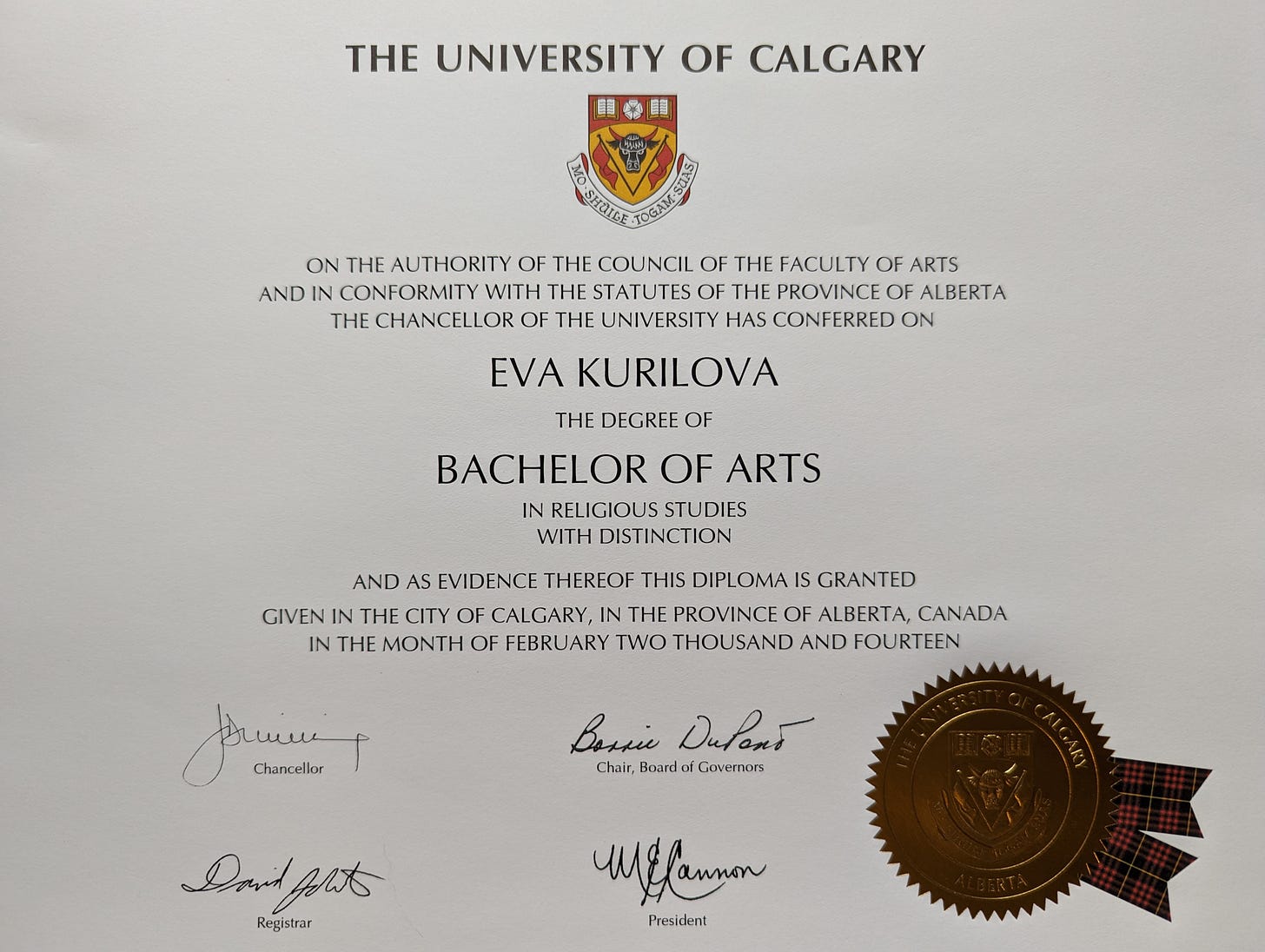I Got a Degree in Religious Studies, and Here I Am Still Studying Religion
Maybe it wasn’t such a useless degree after all
I’ve always said that my bachelor’s degree in religious studies was useless but that I don’t regret it. I learned a lot and I credit it with the way I think and the perspective I have on the world. Still, my degree wasn’t exactly practically applicable. I went on to become a content writer and, while going to university certainly helped improve my writing, my degree wasn’t essential to my subsequent career path.
Nowadays, it seems like all I do is talk and write about religion, specifically gender religion.
My interest in religion is likely a big part of what drove me to the debate around gender ideology in the first place. This strange new belief system with its thought-terminating mantras became fascinating to me. The day I truly realized that some people actually meant “trans women are women”—as in, really meant it and weren’t just saying it as a social nicety—my world was shattered.
How could this really be what some people believe? I thought. How could they believe it enough to thin…




